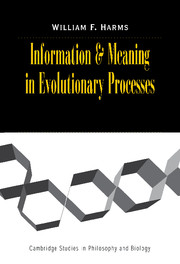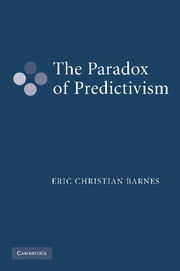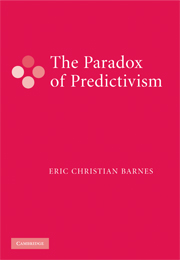Information and Meaning in Evolutionary Processes
This book is intended to help transform epistemology - the traditional study of knowledge - into a rigorous discipline by removing conceptual roadblocks and developing formal tools required for a fully naturalized epistemology. The evolutionary approach which Harms favours begins with the common observation that if our senses and reasoning were not reliable, then natural selection would have eliminated them long ago. The challenge for some time has been how to transform these informal musings about evolutionary epistemology into a rigorous theoretical discipline capable of complementing current scientific studies of the evolution of cognition with a philosophically defensible account of meaning and justification.
- Applies a modelling approach to epistemology
- Taps into the ongoing debates about the relationship between genetic and cultural evolution
Reviews & endorsements
"...this is a very enjoyable book...Harm's demonstration of the fecundity of his approach may persuade those sympathetic to naturalism that evolutionary epistemology has much to offer." --Joseph Millum, University of Toronto: Philosophy in Review
Product details
April 2004Hardback
9780521815147
282 pages
229 × 152 × 19 mm
0.542kg
34 b/w illus. 8 tables
Available
Table of Contents
- Acknowledgements
- Introduction
- Part I. Generalizing Evolutionary Theory:
- 1. Replicator theories
- 2. Ontologies of evolution and cultural transmission
- Part II. Modeling Information Flow in Evolutionary Processes:
- 3. Population dynamics
- 4. Information theory
- 5. Selection as an information-transfer process
- 6. Multilevel information transfer
- 7. Information in internal states
- Part III. Meaning Conventions and Normativity:
- 8. Primitive content
- 9. Is and ought
- Epilogue: Paley's Watch and other stories
- Notes
- Appendix: proof of information gain under frequency-independent discrete replicator dynamics for population of n types
- References
- Index.





